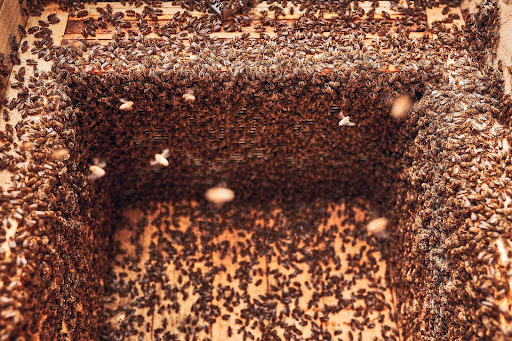Last summer, I visited my friend Mark’s bee farm in upstate New York. It was a warm July afternoon, and as soon as I stepped out of the car, I heard it: the hum. The air buzzed with thousands of tiny wings beating in unison, a sound so constant it felt like the world was vibrating.
“Doesn’t it drive you crazy?” I asked Mark as he handed me a bee suit.
He just laughed. “At first, sure. But after a while, you don’t even notice it. It’s just part of the job.”
That visit stuck with me.
Not because I developed a sudden interest in honey harvesting (though I did leave with a jar of the best clover honey I’ve ever tasted), but because it got me thinking about those who live with their own kind of buzzing—the constant hum of tinnitus.
For many, that persistent sound can feel like a prison, an inescapable background noise shaping their daily lives.
But as I watched Mark work seamlessly amidst the hive, I couldn’t help but wonder:
What if there were lessons here for finding peace amidst the noise?
The Parallel Between Beekeeping and Tinnitus

Tinnitus, much like the hum of a beehive, can be overwhelming. The constant sound has been linked to stress, anxiety, and even difficulty concentrating. But just as beekeepers learn to work harmoniously with their buzzing companions, we can learn to live—and thrive—despite tinnitus.
Why share this comparison?
It’s because the secrets to adaptation are often found in unexpected places. If beekeepers can master the art of tuning out a hive’s noise, perhaps their techniques can inspire solutions for those with tinnitus.
Lessons from the Hive: Practical Strategies for Tinnitus

Shifting Your Focus
Beekeepers don’t fixate on the buzz; instead, they focus on the task at hand—inspecting combs, gathering honey, or tending to their bees. This act of redirected attention mirrors mindfulness techniques used for tinnitus management. Practices like meditation and deep breathing can help shift focus away from the noise in your ears and toward the present moment.
Neuroscience of Habituation
Over time, beekeepers report that they “stop hearing” the buzzing. This isn’t magic—it’s the brain’s way of adapting. Scientists call this habituation, where the brain tunes out repetitive stimuli. Sound therapy for tinnitus works similarly, training your brain to deprioritize the ringing.
Stress Management
Just as beekeepers wear protective gear to avoid stings, those with tinnitus must protect themselves from stress—a known trigger for worsening symptoms. Techniques like yoga, progressive muscle relaxation, or even massage can help reduce stress hormones like cortisol.
Creating Positive Associations
Beekeepers often associate the hum of bees with productivity and nature’s rhythms. What if you could reframe your tinnitus similarly? Background white noise, such as ocean sounds or rainfall, can help recontextualize the ringing as part of a soothing soundscape rather than an irritant.
Why It’s Worth Buzzing About
Here’s the thing…
Tinnitus affects millions of people worldwide. It can be frustrating, isolating, and seem like an unending battle. But stories like those of beekeepers remind us that we’re not alone in adapting to life’s constant noise.
If they can find peace amidst the hum of thousands of buzzing bees, we can find strategies to quiet the chaos in our minds.
Have you discovered your own ways to manage tinnitus? Or does the idea of learning from beekeepers inspire you to try new strategies? Share your thoughts by replying to me. I’d love to hear how you’re buzzing through the noise.





